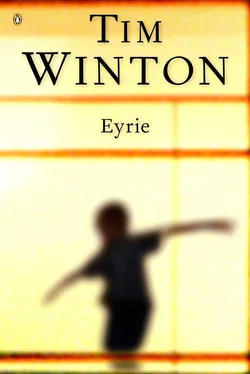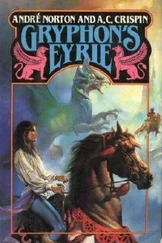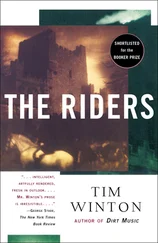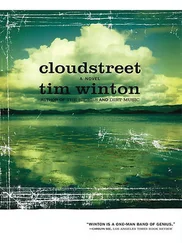So. Elation departed in haste. And dear God. Here it was. Whatever it happened to be. There on the carpet. Evidence that his inner Elvis had surely left the building.
And now, next door, as if feeling his misery in the ether, the demoniac started up for the day. No you don’t, she said through the thin wall. No, you won’t. Never!
No, he muttered bitterly. Probably not.
He was hungry.
He poured himself a bowl of muesli and champed away penitently, not taking his eyes from the stain. Nah, that wasn’t urine. But if he was wrong, on a February day like this, his sanctuary would soon reek like a Marseilles pissoir.
After two spoonfuls of Swiss chaff he gagged and conceded defeat. He required an improper breakfast.
Regardless.
Immediately.
Along the open walkway of the tenth floor, on the eastern face of the building, all doors were shut and most curtains drawn against the sun, so there was no one to greet, nothing to be said as Keely made his way towards the lifts in the roasting wind. To steady himself he gripped the iron balustrade. The metal was lumpy from decades of paint, as scaled and lime-caked as the taffrail of a tramp steamer. Hauling himself along it he felt the full span of uprights begin to vibrate in weird sympathy, humming louder with every step until it seemed the building and the surrounding streets were speaking across each other. Down there it was a mash of idling buses, cooling stacks, car alarms and feral screamers. Behind, below, before him, the air sawed and seethed. Good Christ, the heat, the cacophony — they were insupportable. But he had to get out, pull his mind away from what he didn’t understand, couldn’t fix, had to let slide.
At the lifts he hunted a bit of shade, which meant the grungy stairwell. While he waited, the croon and chirp of little kids rose from the convent playground across the side street. Rugrats having at it — this was the sort of noise a man should never tire of. But in truth it was getting old. Even child’s play sounded sinister after a while, something else to steel yourself against.
And now his heart was in his neck again.
And where was the bloody lift?
He wondered if it was possible he’d left his door open last night, just flaked out and left it ajar in the smothering heat. Maybe some nutjob had snuck in for a laugh, to mess with him, give him a fright. No shortage of scumbags in the building. But the door wasclosed when he went to bed. Wasn’t it? Pissed or sober, he was veryparticular about locking up. Anyway, it was shut when he woke. If someone had crept in, seizing the moment, taking advantage of his temporary lapse or possible derangement, they’d pulled the door to on their way out. From what — good breeding, pity, regret? There was no sign of any other mischief. They’d taken nothing. Not that there was much to take. He had no enemies here. That he knew of. He kept to himself. Studiously. No one, not even family, had crossed the threshold. So the thought of a lurker there while he slept, someone hovering in the hot darkness, watching — it went through him like a colonic twitch.
The lift was mercifully empty. He travelled unseen and uninterrupted to the ground floor. Let the lobby doors roll back. Took it full in the face. All that hideous light. Walked out like a halfwit into a bushfire.
He didn’t even know where he was headed. Discovered himself walking the wrong way, for one thing. It was hot enough to kill an asbestos sparrow. The concrete forecourt livid, the street branding, blinding, breath-sucking. Acid light plashed white underfoot, swashing wall to wall, window upon window, and he waded in it a moment, tilting spastic and helpless, so suddenly porous and chalky it was all behind his eyes in an instant, fizzing within his skull until it rendered everything outside him in flashes and flickers. No gentling tones out here, only abyssal shadows or colours so saturated they looked carcinogenic. Keely glimpsed, gasped, fought off the dread and gimped on gamely, but he didn’t see the bodies on the pavement outside the Chinese joint until he’d almost trampled them.
A girl hunkered in the busy foot-traffic beneath an audience of women who bickered with such conviction they had to be relatives. All of them fat and angry, red-faced, sniping. The girl herself was changing a baby’s nappy in the street; a hot, shrieking girl-child on the bare concrete. And as he pulled up, sculling a moment, disoriented as much as obstructed, he felt the clan stiffen, saw them scowl as if preparing to fend him off. He hesitated, sought a course around them, as the oldest, a stout and ugly woman, bunched a Kmart bag and shoved it beneath the infant’s head. In nearly the same moment the squatting mother shot a glance upwards that seemed directed solely at him. It may only have been a glance of shame or even defiance but to Keely it felt like hatred and he turned aside as if struck.
He angled away into an oncoming torrent of pedestrians, all boiled faces and beetling sunglasses, a surge of elbows, phones, smoke-puckers and semi-syllables within a fug of sweat and warring perfumes. He yielded towards the road’s edge where buses shuddered and gulped at the kerb. A skateboarder swept past. The street pulsed and roared as he fought for a bearing. Target, pharmacy, real estate agent, bank. Fuck, he was listing, yawing, hopelessly self-correcting. It was more than he could manage. Any second he’d capsize.
So he lurched into the closest entry. Coles. Safe harbour. Obedient glass doors, airconditioning, muzak. Went deep, headed instinctively for the fluorescent headwaters, seeking cool air and cooler still, until he found himself in the produce section, staring at spears of Peruvian asparagus in slender, uniform lines of pale green. They were only cut vegetables, for Christ’s sake, and cheap imports at that, but there was something lovely and clement about their serried ranks and pastel colour, and now that he noticed it, the entire refrigerated colonnade had over it a misty sheen cool enough to make a Celt weep. Moist, clean, unending blur. Beneath the muzak, a special kind of quiet. Silent gusts of respite. And such calm, such unpeopled order. He caught himself fighting the urge to lie down there in the lee of these wafting cabinets and sleep till dark. Just him and poor Karen Carpenter. Him and the clean pine crates and the Pine O Cleen disinfecant and those vegetables to which clung the last faint odour of something like life itself. He imagined it, thought better of it, then discovered himself on the lino, being stood over by a woman with spectacles and brown fists. She seemed distressed, even angry, but she was being perturbed in a language he didn’t speak yet. She pointed at him excitedly, bleating and toothbearing a little before she began to hammer with some emphasis at the steel cradle of the impressive tomato display. But his cheek was cool against the floor and he couldn’t quite feel the immediacy of her concern. And then she was yanking at him without fear or favour, and he was on his feet, alone.
Maybe this was what it was like to die a little, to feel shriven, rescued, redeemed. Having your collar pulled, your fucking beard tugged by the roots until there you were, upright and guiltless, watching your irritated saviour scuff away in Third World footwear, pushing a loaded trolley.
Becalmed. Adrift. Summoning a bit of puff.
He ghosted through the aisles accompanied by the sad, sweet Carpenters — who he hoped were now both safely dead. For his peace of mind. For their own good.
Finally, for the sake of propriety, to feel in charge of himself once more, he made a few purchases. The steadying force of retail.
This. This. That, whatever it was. Couldn’t afford any but he bought them all.
Going through the motions at the checkout helped a little, but it occurred to him — winked like an oil light on the dash — that he really could be losing his mind. And that couldn’t be all his fault. Surely.
Читать дальше












